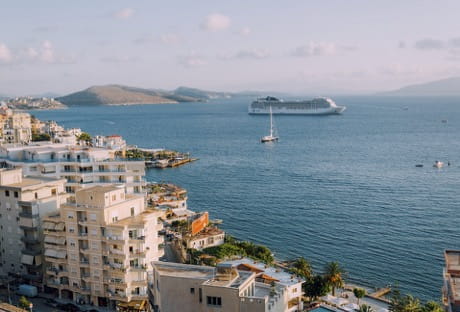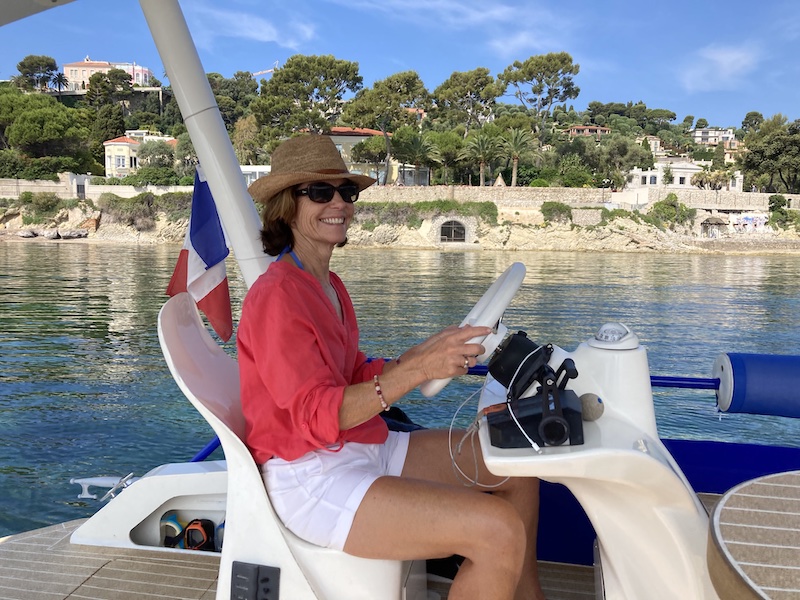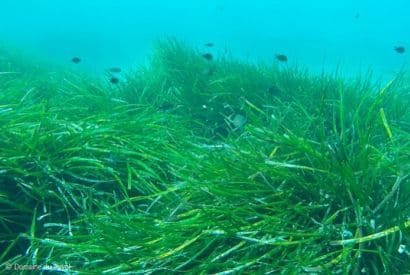Cruising and the environment: the responsible commitment of cruise passengers
With CO2 emissions into the air and water from ships, the cruise sector is one of the most polluting industries in the world. At a time when the fight against global warming is a major challenge, it is becoming urgent to act to limit the impact of travel on terrestrial and marine ecosystems. More and more cruise lines are strengthening their commitment to the environment and offering environmentally friendly cruises. Find out what is being done to preserve the planet and its resources.
Reducing the environmental footprint, a major objective
With the environment at the forefront of their concerns, tourists are gradually beginning to become aware of their ecological impact. It is in order to meet the demands of customers concerned about their ecological footprint that many companies are choosing to offer greener alternatives to traditional cruises. Indeed, the cruise sector has long been criticised for the significant pollution emanating from cruise ships, which degrades the quality of the air and oceans. The reduction of toxic discharges linked to cruises is therefore a vital issue in order to limit the risks of global warming while protecting biodiversity.

Faced with the dangers posed by the cruise sector, the companies intend to put in place concrete greener solutions, including the introduction of ecological ships. These new cruise ships are fuelled with Liquefied Natural Gas (LNG), a fuel that is much less polluting than fuel oil. Indeed, this source of energy considerably reduces the toxic particles and CO2 released by conventional cruise ships.
The protection of the ecosystems and the inhabitants of the destinations visited is also one of the objectives set by cruise passengers. This is why the new eco-responsible ships are equipped with new technologies in line with the new pollution reduction standards. Among other things, they have an advanced waste and wastewater treatment system, as well as technologies to reduce noise pollution that can harm marine fauna and flora.
In addition to the material measures taken to protect biodiversity and the local population, raising passenger awareness is also one of the commitments made by cruise lines. You will therefore have the opportunity to attend conferences dedicated to the preservation of ecosystems on board your ship.
Which cruise lines are committed to preserving the environment?
Preserving the sea and its biodiversity is a necessity for cruise passengers. The collective awareness has notably led companies to go green and take radical measures to reduce their environmental impact. These cruise companies committed to environmental protection include :
Costa Cruises
Costa is one of the cruise lines that have received Green Star and RINA certification, thanks in part to its unique waste recycling programme. This programme, known as "Sustainable Cruise", is designed to reduce the production of pollution during cruises, to improve water conservation and to optimise the cruise ship's energy capacities by recycling solid waste and reusing residues. Costa Croisières also supports the fight against food waste by collaborating with the Food Banks.
MSC Cruises
Among the actions carried out in favour of environmental protection, the MSC company has invested in a sustainable development programme. Its most recent vessels are equipped with technologies to improve waste treatment, including an incinerator system, compactors and a food shredder. MSC has won the NAMEPA 2020 Maritime Environmental Protection Award for its programme. Its actions also include the banning of plastic in favour of packaging and containers made of eco-friendly materials such as cardboard and glass.
Hurtigruten
Since protecting the planet and its resources is a priority for Hurtigruten, the company intends to integrate green technologies into all its activities. The company offers a range of environmentally friendly cruises, organised in an environmentally friendly manner. In 2019, the company launched its first ever hybrid ship, the "Roald Amundsen", which runs on both diesel and LNG. Like the Roald Amundsen, other ships will benefit from improvements to reduce carbon emissions, with the introduction of new Tier 3 engines and more fuel-efficient propellers. Hurtigruten also contributes to the protection of fragile destinations such as Antarctica through its collaboration with NGOs.
The Compagnie du Ponant
The Compagnie du Ponant is also one of the cruise lines that have deployed more environmentally friendly technologies in their ships. Committed to the Blue Charter of French Shipowners, the company has installed the latest technology diesel engines powered by Marine Diesiel Oil (MDO) on its entire fleet. This is a less polluting fuel compared to the traditional fuel used in the cruise sector, making it possible to reduce emissions of particles that are harmful to the environment. In addition to eco-responsible technologies, the company is committed to the Sea Plastics association to fight against pollution of the aquatic environment by the discharge of plastic.
Norwegian Cruise Line
Norwegian Cruise Line is one of the world's leading cruise lines, both for the diversity of its on-board activities and its commitment to the environment. With the international ISO 140001 standard, the cruise line meets current requirements in terms of ecosystem protection through a set of regulations designed to reduce its ecological footprint. Its environmentally friendly management of the cruise ship has earned it the "Green Gataway" award from the Port of Seattle. These measures for greener cruises include the organisation of a "Splash Academy", designed to make young passengers aware of environmental issues and respect for the oceans.
Royal Caribbean
While the Royal Caribbean has long been criticised for its large ecological footprint, this cruise line has invested heavily in implementing greener and more sustainable solutions. In addition to deploying state-of-the-art technology on its ships, its actions also include the creation of an investment fund called "Ocean Fund". This is a fund dedicated to subsidising various environmental organisations involved in the preservation of the oceans.
For more information
Our Eco-Navigation's articles inform you about the latest news on cruising but also about technological innovations in solar or hydrogen powered electric boats. You can also discover solar navigation, the ultimate form of clean motorized navigation by visiting our seaZen site.




